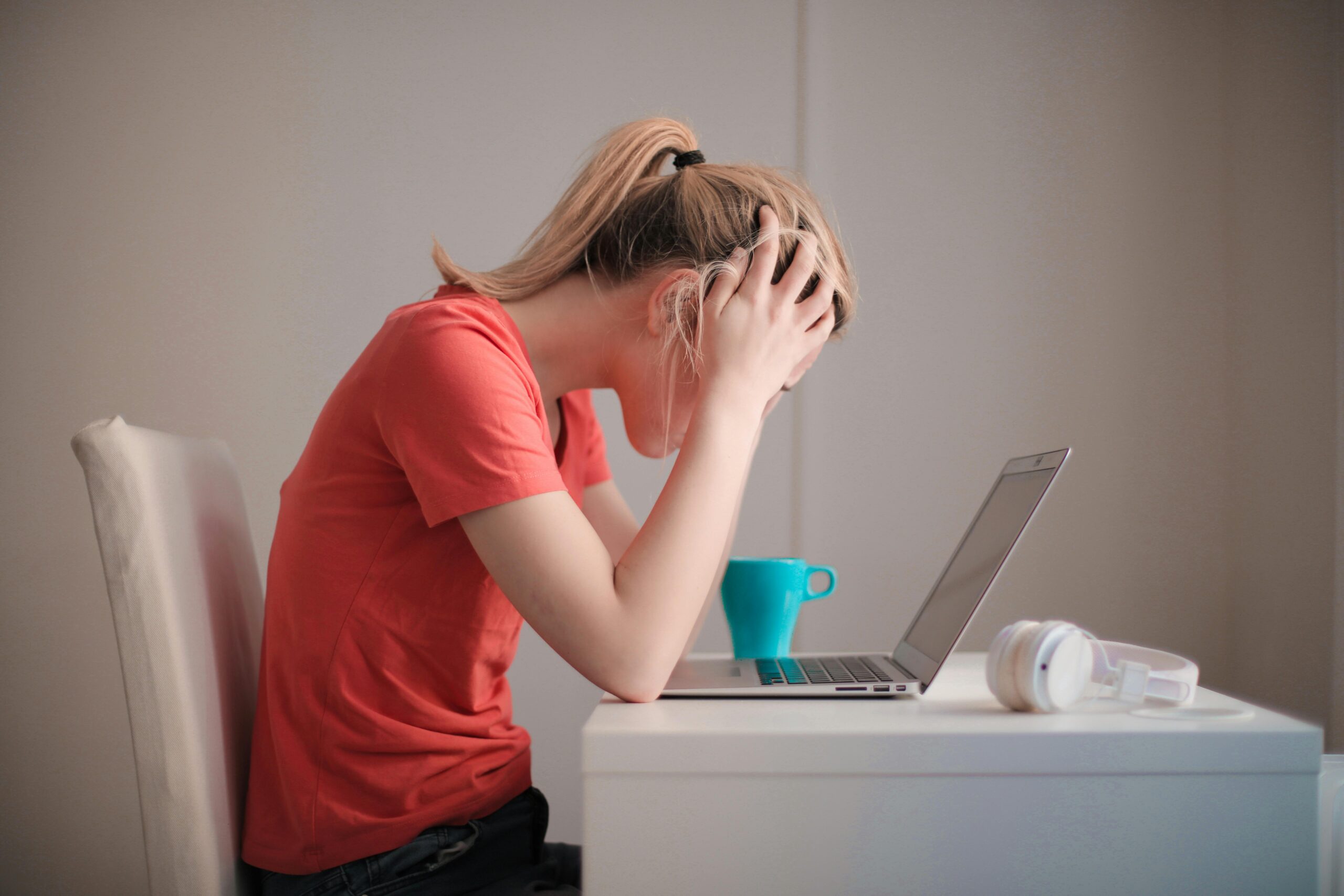Anxiety is more than fleeting nervousness—it’s a condition that affects millions worldwide. Imagine feeling a persistent sense of unease that lingers, even without an immediate reason to worry. Did you know that nearly 1 in 5 adults in the U.S. experience anxiety disorders every year?
apprehension is a natural response to stress that becomes problematic when it’s excessive and persistent. It involves feelings of fear, unease, or worry that can disrupt daily life. Understanding apprehension is the first step to managing it effectively.
In this blog, we’ll explore what apprehension is, what it feels like, what causes it, the types of apprehension disorders, coping strategies, and how telehealth services like SDKare can help you manage it from the comfort of your home.
Understanding Anxiety
Anxiety
apprehension is your body’s way of reacting to stress, designed to alert you to potential danger. While it’s normal to feel anxious occasionally, such as before a presentation or exam, anxiety disorders amplify this response without a clear cause, affecting your ability to function.
What Does Anxiety Feel Like?
apprehension affects both the mind and body, creating a range of symptoms that can feel overwhelming and difficult to control.
Physical Symptoms
apprehension often manifests physically, causing symptoms like a racing heart, trembling, sweating, or shortness of breath. Chronic fatigue, muscle tension, and trouble sleeping are also common complaints.
Emotional Symptoms
Emotionally, apprehension can make you feel restless, irritable, and unable to concentrate. Many people with anxiety report feeling on edge or consumed by excessive worry about everyday situations.
What Causes Anxiety?
apprehension can be caused by a mix of biological, psychological, and environmental factors.
Biological Factors
Genetic predisposition and imbalances in brain chemicals like serotonin or dopamine can make someone more vulnerable to apprehension.
Psychological Factors
Trauma, stress, or chronic negative thinking patterns can contribute significantly to the development of apprehension disorders.
Environmental Factors
Life changes, financial struggles, and social pressures often act as triggers for apprehension. Events like moving, job loss, or relationship problems can also play a role.
Types of Anxiety Disorders
Generalized Anxiety Disorder (GAD)
GAD involves constant worry about a variety of topics, even when there’s no clear reason to be anxious. People with GAD often feel tense and overwhelmed by daily life.
Panic Disorder
Panic disorder is marked by sudden, intense episodes of fear called panic attacks. These attacks can cause severe physical symptoms like chest pain, dizziness, and a feeling of losing control.
Social Anxiety Disorder
Social apprehension disorder creates a crippling fear of being judged or embarrassed in social situations. People with this disorder may avoid gatherings, meetings, or even phone calls.
Specific Phobias
A specific phobia is an intense fear of certain objects or situations, such as heights, flying, or animals. This fear is disproportionate to the actual threat posed.
Obsessive-Compulsive Disorder (OCD)
OCD is characterized by recurring intrusive thoughts (obsessions) and repetitive behaviors (compulsions), such as washing hands or checking locks excessively.
Coping with Anxiety
How to Calm Anxiety?
Managing apprehension involves a mix of self-help techniques and professional interventions, depending on its severity.
Self-Help Techniques
Simple practices like mindfulness meditation, deep breathing exercises, yoga, and journaling can help calm the mind and reduce physical tension caused by apprehension.
Professional Help
For more severe cases, therapy (such as Cognitive Behavioral Therapy) and prescribed medications can provide targeted relief and improve coping mechanisms.
Can Anxiety Cause Chest Pain?
Yes, apprehension can lead to chest pain, which is often mistaken for a heart condition. This happens because anxiety triggers your body’s fight-or-flight response, causing muscle tension and rapid heartbeats. Understanding this link can help you manage the fear associated with such symptoms.
How Do You Help a Person with apprehension?
Supporting someone with apprehension requires sensitivity and understanding. You can help by actively listening, showing empathy, avoiding judgment, and gently encouraging them to seek professional support if needed.
Why Does Alcohol Increase apprehension?
Understanding the Connection Between Alcohol and Anxiety
Many people turn to alcohol as a temporary solution to relieve apprehension. However, why does alcohol increase anxiety over time? While alcohol may initially seem to calm nerves, its long-term impact on the brain can actually make anxiety worse.
The Impact of Alcohol on apprehension
Alcohol affects the brain’s neurotransmitters, such as serotonin and dopamine, which regulate mood and apprehension levels. Why does alcohol increase anxiety? The disruption of these chemicals can trigger feelings of unease or panic once the alcohol begins to wear off. Additionally, alcohol can interfere with sleep patterns, leading to greater apprehension and restlessness the following day.
The Long-Term Effects of Alcohol on apprehension
Regular alcohol consumption can exacerbate apprehension symptoms and even contribute to the development of anxiety disorders. If you’re already struggling with anxiety, It is crucial to understand — reducing or eliminating alcohol consumption is key to effectively managing your mental health and preventing anxiety from worsening.
When to Seek Professional Help
Recognizing the Signs
Persistent apprehension that interferes with daily activities, causes physical symptoms, or leads to emotional distress indicates the need for professional help. Early intervention can prevent apprehension from worsening and improve overall well-being.
Telehealth and Online Consultations
Telehealth is transforming healthcare by connecting patients with licensed professionals through virtual platforms. This innovation is particularly valuable for apprehension treatment, as it removes barriers like travel, time constraints, and social stigma.
Final Thoughts
apprehension is a widespread condition that impacts millions, but with the right knowledge and tools, it can be managed effectively. Recognizing the symptoms, understanding the causes, and exploring available treatments are critical steps toward recovery.
If apprehension feels overwhelming, remember that help is available. Seeking professional guidance can make a significant difference in restoring balance to your life.
Take the first step toward managing your apprehension today!
SDKare offers the best affordable telehealth services for anxiety treatment online. With licensed professionals and personalized care plans, you can receive the support you need without leaving your home. Book your consultation now and start your journey to better mental health.
Frequently Asked Questions
Q. Is apprehension a serious condition?
A. While mild apprehension is a common human experience, severe apprehension can significantly impact daily life. It’s important to recognize the signs and seek professional help if needed.
Q. Can apprehension lead to physical symptoms?
A. Yes, apprehension can manifest in various physical symptoms, such as rapid heart rate, sweating, difficulty breathing, muscle tension, and digestive issues.
Q. How long does an apprehension attack last?
A. The duration of an apprehension attack can vary from a few minutes to several hours. However, most attacks tend to subside within 30 minutes.
Q. Can medication cure apprehension?
A. Medication can help manage apprehension symptoms, but it’s often used in conjunction with therapy. It’s important to consult with a healthcare professional to determine the best course of treatment.
Q. How can I help someone with apprehension?
A. Be patient, understanding, and supportive. Avoid minimizing their feelings or offering unsolicited advice. Encourage them to seek professional help and offer to accompany them to appointments.
Q. Is it normal to feel anxious sometimes?
A. Yes, it’s normal to experience occasional apprehension. However, if anxiety interferes with your daily life, it’s important to seek professional help.




